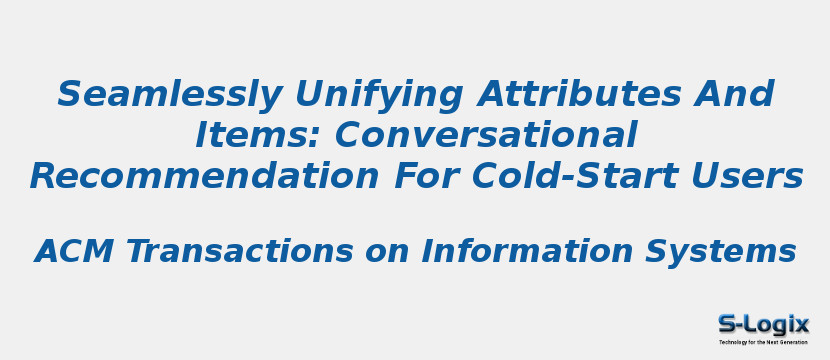Research Area: Machine Learning
Static recommendation methods like collaborative filtering suffer from the inherent limitation of performing real-time personalization for cold-start users. Online recommendation, e.g., multi-armed bandit approach, addresses this limitation by interactively exploring user preference online and pursuing the exploration-exploitation (EE) trade-off. However, existing bandit-based methods model recommendation actions homogeneously. Specifically, they only consider the items as the arms, being incapable of handling the item attributes, which naturally provide interpretable information of users current demands and can effectively filter out undesired items. In this work, we consider the conversational recommendation for cold-start users, where a system can both ask the attributes from and recommend items to a user interactively. This important scenario was studied in a recent work [54]. However, it employs a hand-crafted function to decide when to ask attributes or make recommendations. Such separate modeling of attributes and items makes the effectiveness of the system highly rely on the choice of the hand-crafted function, thus introducing fragility to the system. To address this limitation, we seamlessly unify attributes and items in the same arm space and achieve their EE trade-offs automatically using the framework of Thompson Sampling. Our Conversational Thompson Sampling (ConTS) model holistically solves all questions in conversational recommendation by choosing the arm with the maximal reward to play. Extensive experiments on three benchmark datasets show that ConTS outperforms the state-of-the-art methods Conversational UCB (ConUCB) [54] and Estimation—Action—Reflection model [27] in both metrics of success rate and average number of conversation turns.
Keywords:
Author(s) Name: Shijun Li,Wenqiang Lei,Qingyun Wu,Xiangnan He,Peng Jiang ,Tat-Seng Chua
Journal name: ACM Transactions on Information Systems
Conferrence name:
Publisher name: ACM
DOI: 10.1145/3446427
Volume Information: Volume 39,Issue 4O,ctober 2021 ,Article No.: 40,pp 1–29
Paper Link: https://dl.acm.org/doi/abs/10.1145/3446427
